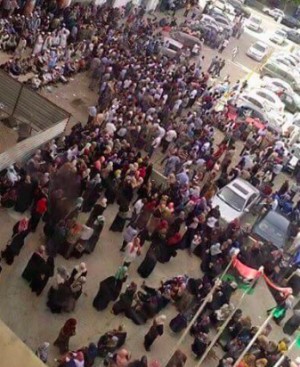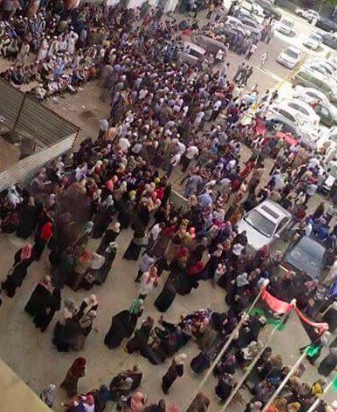By Moutaz Ali.

Tripoli, 5 June 2016:
The governors of Libya’s rival Central Banks agreed last night to work together as a team . . .[restrict]to design a “unity plan” for the whole economy.
Boss of the Beida-based CBL Ali Hebri and Tripoli CBL’s Saddek Elkaber met in Tunis along with unnamed members of the House of Representatives’ Finance Committee. A source close to the encounter told this newspaper said the participants described it as a CBL board meeting.
Both governors confirmed that their banks would accept all imported currency for either side. It has been reported elsewhere that LD 50 million of the new “Russian” Libyan dinars is being sent immediately from Beida to Tripoli.
Frustrated crowds gathered outside banks in the capital today seeking to withdraw cash on the eve of Ramadan. It would appear that last Tuesday’s arrival of LD 112.5 million of bank notes, printed in the UK by De La Rue for the Tripoli CBL, has not had a sufficient impact on the cash shortage.
Last night in Tunis, both CBLs also agreed not to attack each other in the media. They said that they were working together as of their meeting.
It is unclear if Hebri’s initiative along with members of the HoR’s finance committee was endorsed by the parliament in Tobruk and backed by the government of prime minister Abdullah Thinni. There has been no reaction yet to the news from the Tunis meeting.
Elkaber was sacked by the HoR in September 2014 after he refused to go to Tobruk to speak to the parliament. He replaced on a temporary basis by Hebri who was then his deputy.
After initially agreeing to step down while his sacking was reviewed, Elkaber decided that his ouster was unconstitutional and that he should serve out his five-year term of office which ends next year.
As the internationally-recognised parliament, the HoR felt that it had the power to fire Elkaber. However since all the main offices and officials were in Tripoli and the Benghazi branch of the CBL was shot to pieces in the early stages of last year’s Operation Dignity, the Tripoli CBL remained the de facto central bank. Hebri’s CBL in overcrowded Beida has never had access to the majority of the bank’s levers.
[/restrict]









